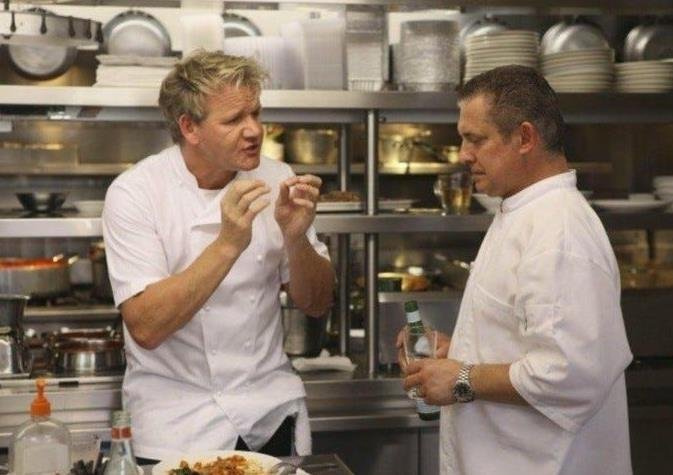TV cooking shows are popular entertainment programs that feature chefs competing in various culinary challenges. Some of these shows, such as Chopped and Beat Bobby Flay, promise fame and fortune for the winners. But what happens to the TV cooking stars after the show? Do they really benefit from the exposure and recognition, or do they struggle to make a name for themselves in the competitive food industry?
The reality of TV cooking competitions
According to some chefs who have participated in TV cooking competitions, the experience is not as glamorous or rewarding as it seems. Derek Corsino, a pastry chef and educator who was a finalist in Spring Baking Championship in 2021, said he did not expect much from the show. “I knew from all my previous work [on TV] that my life was not going to change at all,” he said. “I’m just some guy at the end of the day. I went on that show for my students. It was peak Covid and was a great morale boost when it aired in the spring.”

Corsino said some of his fellow contestants believed they were going to get a lot of business from appearing on the baking competition show, but soon received a reality check. “You’re not going to get business from this because your business name is going to flash really fast on screen,” he said, noting that one competition series he previously filmed was canceled halfway through the season, so no one ever saw his episode. “You’re here because of your own ego.” Palak Patel, a chef who won Chopped in 2013 and Beat Bobby Flay in 2014, said the wins did not immediately change her life, but she did get more calls for private chef events and had some talks with talent agencies. Her TV résumé helped years later when it came to pursuing other projects such as opening (and later closing) a plant-based Indian street food restaurant and getting a book deal. “I didn’t realize what a big deal [the wins were]. It’s not like 17 agents were calling me,” she said.
The challenges of TV cooking fame
Even for those chefs who manage to capitalize on their TV cooking fame, there are many challenges and pitfalls along the way. Some of them include:
- The pressure to perform: TV cooking shows often require chefs to cook under tight time constraints, with limited ingredients, and in front of cameras and judges. This can be stressful and exhausting, especially for those who are not used to it. Some chefs may also feel pressured to conform to certain expectations or stereotypes based on their gender, ethnicity, or personality.
- The risk of overexposure: TV cooking shows can expose chefs to a large audience, but they can also create a saturation effect. If a chef appears on too many shows or repeats the same dishes or styles, they may lose their appeal or credibility. Some chefs may also face backlash or criticism from viewers or peers who disagree with their choices or opinions.
- The difficulty of sustaining success: TV cooking shows can provide a boost to a chef’s career, but they do not guarantee long-term success. Chefs still have to work hard to maintain their reputation, quality, and creativity in a highly competitive and dynamic industry. They also have to deal with the challenges of running a business, such as managing finances, staff, suppliers, customers, and regulations.
The benefits of TV cooking opportunities
Despite the drawbacks, TV cooking shows can also offer some benefits for chefs who participate in them. Some of them include:
- The opportunity to showcase their talent: TV cooking shows can give chefs a platform to demonstrate their skills, creativity, and personality to a wide audience. They can also showcase their signature dishes or styles, or introduce new cuisines or concepts to the public.
1
- The chance to network and learn: TV cooking shows can connect chefs with other professionals in the industry, such as judges, mentors, peers, or potential collaborators. They can also learn from each other’s feedback, techniques, or experiences.The reward of recognition and satisfaction: TV cooking shows can offer chefs recognition and appreciation for their work, either from winning prizes, gaining fans, or receiving positive reviews. They can also provide chefs with personal satisfaction and fulfillment for achieving their goals or overcoming their challenges.
The bottom line
TV cooking shows are not a recipe for success for every chef who participates in them. They have their pros and cons, and they require careful consideration and preparation before entering them. Chefs who want to pursue TV cooking opportunities should be realistic about their expectations, aware of their strengths and weaknesses, and flexible about their plans. They should also remember that TV cooking fame is not an end in itself, but a means to an end: creating delicious food that makes people happy.
